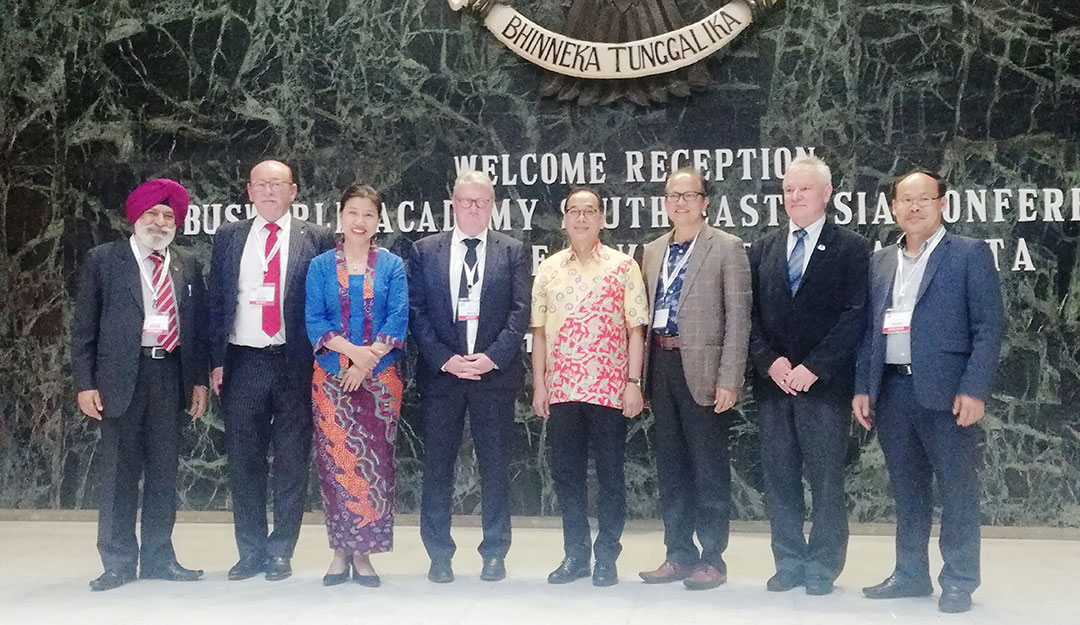20 – 22 March 2019 | JAKARTA, Indonesia – South East Asia region has seen tremendous population increase to an estimated 660 million, with almost 50 percent of them living in urban areas. The situation has raised the number of private vehicle ownership, and eventually contributed to air pollution, traffic congestion and road accidents, all of which are the major concerns for sustainable urban development. To tackle the challenges, strategic responses such as systematic development of public transportation are required.
To address the situation, UCLG ASPAC collaborated with partners namely: the Busworld Academy, the United Nations Centre for Regional Development (UNCRD) Japan, the United Nations Human Settlements Programme (UN-Habitat), the Union Internationale des Transports Publics (UITP), the Federation of the Indonesian Body Builders (ASKARINDO), and the Federation of the Private Young Bus Operators (IPOMI), in organising a Conference under the theme “Making Bus Transport System Attractive, Efficient, and Affordable in Southeast Asia,” in Jakarta, from 20 to 22 March 2019. The event was supported by the Indonesian Ministry of Transport, the Indonesian Ministry of Industry, and Indonesian Ministry of National Development Planning (Bappenas).
During the three-day forum, various stakeholders agreed on the critical needs of sustainable public transport in South East Asian cities. To accelerate the implementation, distinguished participants discussed a broad-range of issues including planning, regulations, policy implementation, and analysed the challenges faced by decision makers. High-level representatives of private sectors, such as Volvo, Mercedes, Scania, and Daimler also took part in the event to strengthen the public-private partnership.
During the discussion, participants reiterated the important need to create coherent regulatory and policy frameworks for business, including in the fields of safety and traffic management, emission and fossil-free fuel energy. Development of mass transportation, Bus Rapid Transit (BRT) systems, and supporting infrastructure were further discussed along with other technical aspects, such as new technology in bus building, standardisation processes, and safety performance. A specific session was dedicated to sustainable public transport in Indonesia.
UCLG ASPAC was represented by Secretary General Bernadia Irawati Tjandradewi and Special Advisor for Transport Dr. Gyeng Chul Kim and also attended by Deputy Governor of Jakarta, the Co-Chair of UCLG Mobility Community of Practices, Dr. Sutanto Soehodho, The Governor of Bus Authority of Phnom Penh and the Deputy Mayor of Petaling Jaya used the occasion to sign their intentions to be part of the UCLG-UITP Mobility Community of Practices.











